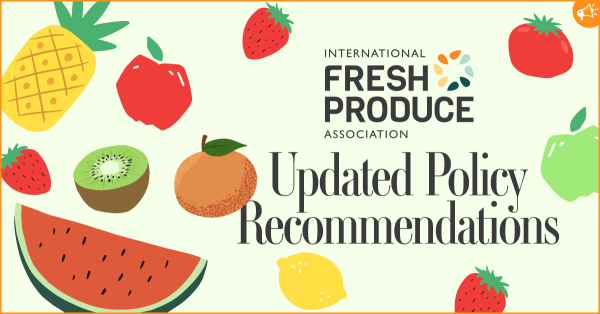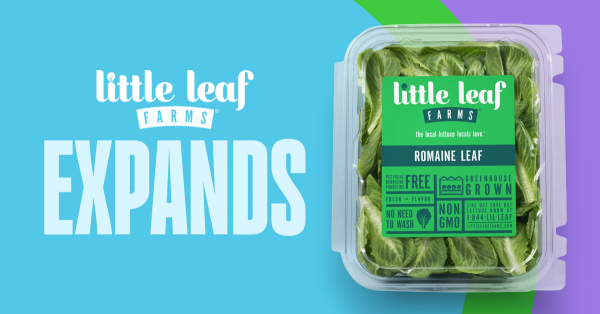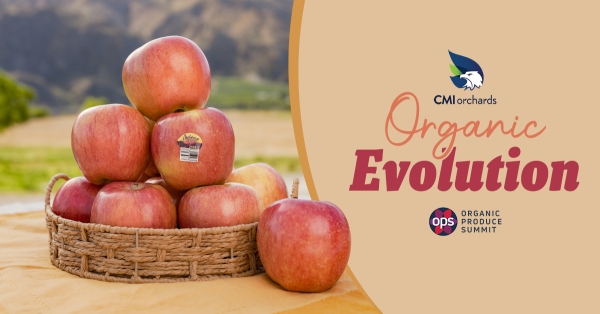
Michael Schadler, Tony DiMare, and More Comment on Tomato Suspension Agreement
FLORIDA - Michael Schadler of The Florida Tomato Exchange, recently put forth a statement on the May 10 proposal for a new Tomato Suspension Agreement.
 “Sadly, the Mexican industry rejected the proposed terms and is now complaining that the Commerce Department’s proposal contained unlawful demands,” Schadler stated. “This, of course, is posturing because the Commerce Department doesn’t make unlawful proposals. Mexican tomato growers would be wise to remember that a suspension agreement is a negotiated settlement in exchange for the U.S. government not prosecuting a case in which Mexican exporters were found to be dumping tomatoes.”
“Sadly, the Mexican industry rejected the proposed terms and is now complaining that the Commerce Department’s proposal contained unlawful demands,” Schadler stated. “This, of course, is posturing because the Commerce Department doesn’t make unlawful proposals. Mexican tomato growers would be wise to remember that a suspension agreement is a negotiated settlement in exchange for the U.S. government not prosecuting a case in which Mexican exporters were found to be dumping tomatoes.”

The Florida Tomato Exchange believes that the May 10 proposal contained new provisions to eliminate the loopholes in the old agreement that permitted alleged cheating by Mexican exporters.
“We hope the Mexican industry will reconsider its opposition rather than resorting to litigation tactics that run the risk of collapsing the negotiations,” said Schadler.
Below are the The Florida Tomato’s Exchange’s understanding of the provision in question:
- The old agreement only allowed U.S. buyers to adjust prices based on condition defects; not quality defects. The Commerce Department’s proposal would allow price adjustments for both condition and quality, which would actually provide more rights to U.S. buyers of Mexican tomatoes. This would also level the playing field by making Mexican tomatoes subject to the same USDA standards as American tomatoes.
- The old agreement created an incentive for growers and distributors of Mexican tomatoes to game the agreement’s price adjustment system by shipping product they knew would not make USDA good delivery standards on arrival. The Commerce proposal would eliminate this loophole by preventing tomatoes that don’t pass USDA inspection from being used as price deductions against the cost of tomatoes that do pass inspection, thereby lowering the price below the suspension agreement minimums.
- As anyone in the tomato business knows, most U.S. supermarkets have even stricter receiving standards than USDA. It’s incorrect to think that this provision—which would only be applicable during times of significant oversupply—would have any impact on U.S. supermarkets or consumers.
“To reject an agreement based on this provision demonstrates clearly that Mexican growers used the old suspension agreement as cover to continue dumping tomatoes into the U.S. market during times of oversupply,” Schadler aruged.
He also included comments from several growers who hope that a reasonable suspension agreement can be obtained:
“The market window isn’t there like it used to be. This is 100 percent due to supply from Mexico,” stated Fred Leitz, a vine-ripened tomato grower in Michigan. “Our costs are going up and our prices are going down. I sold tomatoes cheaper last year than I’ve sold in probably 10 years.”
 Tony DiMare, Vice President of DiMare Fresh, added, “Individual growers and packing operations are leaving the industry in Florida at an alarming rate. This is a result of Mexican tomatoes being dumped in the U.S. market at less than fair value. Grower/Shippers in California are also leaving the industry.”
Tony DiMare, Vice President of DiMare Fresh, added, “Individual growers and packing operations are leaving the industry in Florida at an alarming rate. This is a result of Mexican tomatoes being dumped in the U.S. market at less than fair value. Grower/Shippers in California are also leaving the industry.”
 “As someone who grows tomatoes in both the U.S. and Mexico, I’ve witnessed firsthand the failure of the suspension agreement over the last 20 years,” said Jon Esformes of Sunripe Certified Brands, which grows tomatoes in Virginia, Georgia, Florida, and Mexico. “The circumvention of the agreement hurts domestic farmers and frankly hurts Mexican growers who abide by both the letter and spirit of the law. Any new suspension agreement must have much tougher enforcement and inspection provisions.”
“As someone who grows tomatoes in both the U.S. and Mexico, I’ve witnessed firsthand the failure of the suspension agreement over the last 20 years,” said Jon Esformes of Sunripe Certified Brands, which grows tomatoes in Virginia, Georgia, Florida, and Mexico. “The circumvention of the agreement hurts domestic farmers and frankly hurts Mexican growers who abide by both the letter and spirit of the law. Any new suspension agreement must have much tougher enforcement and inspection provisions.”
 “Tomatoes from Mexico are priced so low that I am unable to price my products at levels that cover my increasing labor costs," stated Priya Singh of West Coast Tomato Growers.“Such a large price gap is stacked against not only us but all farmers in the United States.”
“Tomatoes from Mexico are priced so low that I am unable to price my products at levels that cover my increasing labor costs," stated Priya Singh of West Coast Tomato Growers.“Such a large price gap is stacked against not only us but all farmers in the United States.”
 “We have the ability to double or triple our production to meet domestic demand," said Chad Ianneo of SunSelect Produce, a greenhouse grower of tomatoes-on-the-vine in Tehachapi, California. “Unfortunately, we have decided to suspend expansion due to low prices and the impact of increased Mexican imports.”
“We have the ability to double or triple our production to meet domestic demand," said Chad Ianneo of SunSelect Produce, a greenhouse grower of tomatoes-on-the-vine in Tehachapi, California. “Unfortunately, we have decided to suspend expansion due to low prices and the impact of increased Mexican imports.”
 “Growing tomatoes in the U.S. has become more difficult each year," according to Toby Purse, Chief Farming Officer for Lipman Family Farms. “In Florida alone, we’ve gone from over 100 growers to around 20 in a short time. The smaller growers have been hurt the most. Cheap Mexican imports that are partly fueled by Mexican government subsidies have contributed to the decline of the U.S. tomato industry. We believe in free trade, as long as it is fair. This is not about higher reference prices; we just want an agreement that is honored by all. The lack of compliance by the Mexican growers in the previous agreement was the main reason for these negotiations. The domestic farmers have responded diligently to this process, including last week when the Mexican representatives walked away refusing to negotiate. Hopefully we can work together to get past this soon.”
“Growing tomatoes in the U.S. has become more difficult each year," according to Toby Purse, Chief Farming Officer for Lipman Family Farms. “In Florida alone, we’ve gone from over 100 growers to around 20 in a short time. The smaller growers have been hurt the most. Cheap Mexican imports that are partly fueled by Mexican government subsidies have contributed to the decline of the U.S. tomato industry. We believe in free trade, as long as it is fair. This is not about higher reference prices; we just want an agreement that is honored by all. The lack of compliance by the Mexican growers in the previous agreement was the main reason for these negotiations. The domestic farmers have responded diligently to this process, including last week when the Mexican representatives walked away refusing to negotiate. Hopefully we can work together to get past this soon.”
For the latest developments on the suspension agreement, keep reading us here at AndNowUKnow.


















